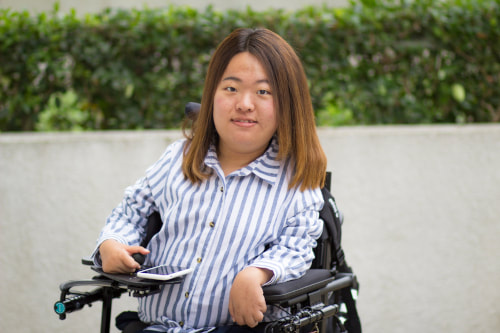|
PhD in Education student Hye Rin Lee has been awarded a 2019 National Science Foundation Graduate Research Fellowship Program (NSF GRFP) Fellowship. Fellowships are awarded to graduate students whose proposed research has the potential to advance knowledge and understanding (intellectual merit) and benefit society/advance societal outcomes. Hye Rin will be focusing her research on social media, physics identity, and women's motivation. She is advised by Distinguished Professor Jacquelynne Eccles.
Abstract To succeed in physics, students must maintain a high motivation. One way to enhance continuing motivation in physics is through role models who have persisted in physics. The underrepresentation of women in physics reduces the likelihood that young women will have such role models. Social media could offer such female role models. YouTube is a free, popular, and widely accessible platform that could provide positive role models who major in physics, enjoy the subject, and plan to enter physics careers that are interesting, important, and compatible with many women’s life goals. These images could support viewers’ continuing a “sense of identification” with physics and help female students believe that “if she can do this, I can too.” In turn, as proposed by various theories (e.g., belonging, expectancy-value, identity theory, etc.), the resulting “physics identity” could promote women’s physics interest, course-taking, and persistence, especially if the videos involve stories of overcoming adversity, enjoying physics learning, and exciting careers as physicists. Therefore, in this study, we attempt to examine the following questions: 1. Can physics role models on YouTube increase the academic motivation for female college students in physic classes? 2. Does this intervention promote female college students’ physics interest and increase physics course grades? 3. How long will the effect persist? Comments are closed.
|
Resources for:
|
|


